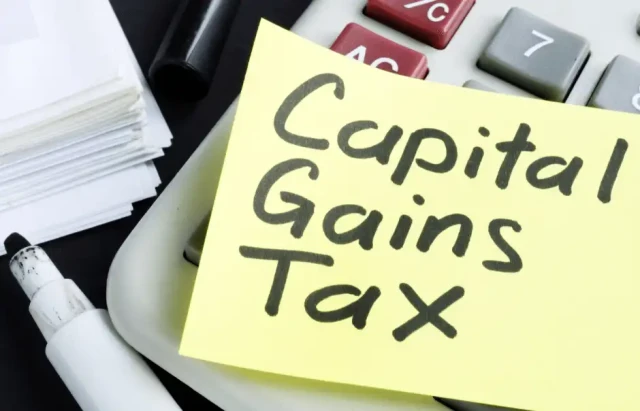Understanding Capital Gains Tax relief can be challenging for businesses. However, it is essential to grasp and utilise these tax advantages to enhance your business's financial well-being. This guide delves into the complexities of CGT relief, providing practical insights and clear advice explicitly designed for SMEs. We will explore different exemptions and reliefs available, offering clear examples and actionable tips to assist you in maximising your tax savings.
If you're considering selling your business, reinvesting your profits, or improving your tax strategy, this detailed guide will make the process easier and provide your business with valuable tax-saving options.
Understanding CGT Rules for Small Businesses
Understanding Capital Gains Tax (CGT) can be challenging for small business owners. However, it's crucial for effective financial management. Here's a guide to help demystify CGT for small and medium-sized enterprises (SMEs).

What is CGT?
Capital Gains Tax (CGT) is a tax on the money you make from selling certain things, like investment property, stocks, or business assets. Investing in CGT when selling these items is crucial because it can affect your overall profit.
- Applicability to Small Businesses: When a small business sells something for more than it originally paid, the profit from the sale may be subject to CGT. This applies to assets such as company vehicles and equipment and even the business if it's structured as a sole proprietorship or partnership.
- Relevance in the Business Lifecycle: Capital Gains Tax (CGT) can affect small businesses at different stages, from starting up to selling. Entrepreneurs should consider CGT when setting up their businesses and making investment choices. When it's time to leave the company, CGT can impact the money made from the sale. Understanding how CGT applies is essential to avoid catching you off guard.
- Financial Impact: Small businesses should consider Capital Gains Tax (CGT) as it may significantly affect their finances. Failing to factor in CGT liabilities can result in unforeseen tax payable and expenses, impacting cash flow and overall profitability.
Small business owners must grasp CGT rules to make sound financial decisions and boost paying tax efficiency as they navigate their business ventures. Understanding these rules can be crucial for making informed choices about their finances.
Exploring CGT Exemptions for Small Business
Small business owners need to navigate Capital Gains Tax (CGT). Knowing about exemptions and who qualifies can help small and medium-sized enterprises.

Small Business 15-Year Exemption:
- Eligibility: To qualify, you must have owned a business for at least 15 years and have net assets totalling less than $6 million.
Small Business 50% Active Asset Reduction:
- Eligibility: The asset should have been active for over 12 months and have appreciated by at least 50%. The duration of the business ownership should also exceed 12 months.
- Eligibility: Individuals who are 55 years old or above, planning for retirement, or facing incapacity, and have net assets less than $1.6 million.
These exceptions help with reinvesting, planning for the future of your business, or preparing for retirement. For additional information, seeking guidance from the Australian Taxation Office or a qualified tax advisor is advisable.
Small Business CGT Concessions
Small businesses rely on Capital Gains Tax (CGT) concessions to lower their tax bills when they sell assets. These concessions are different from exemptions, which exclude entirely gains from being taxed. CGT concessions are crucial in helping small businesses manage their tax burdens when they sell assets.

Types of CGT Concessions:
- 15-Year Exemption: Grants total exemption on capital gains for assets held for at least 15 years.
- Retirement Exemption: Offers a lifetime limit of $500,000 in CGT exemptions for individuals aged 55 or older retiring or permanently incapacitated.
- 50% Active Asset Reduction: This allows a 50% reduction in the capital gain made from the disposal of active business assets.
Benefits with Examples:
- 15-Year Exemption: A family-owned bakery that has been operating for 20 years sells its premises, realising substantial capital gain and avoiding CGT implications.
- Retirement Exemption: A retiring small business owner can utilise the retirement exemption to pocket up to $500,000 tax-free when selling their stake in the company.
Strategic Use and Planning:
- Timing: Selling assets at the right time according to concession eligibility criteria can help minimise your tax bill.
- Professional Advice: Getting advice from tax professionals or financial advisors can help you make the most of CGT concessions based on your circumstances.
How to Apply for CGT Concessions:
1. Learn how Capital Gains Tax (CGT) affects small businesses and how to navigate it effectively. Discover exemptions like the 15-Year Exemption and 50% Active Asset Reduction. Understand CGT concessions for assets held over 15 years and retirement.
2. Keep thorough records of acquiring, using, and disposing of assets. It is important to maintain detailed documentation regarding your assets' entire lifecycle. Thank you.
3. Remember to include the necessary Lodge CGT concession forms and your tax returns. Make sure to provide all required documentation and evidence to support your claims.
Utilising CGT concessions strategically can significantly improve small businesses' financial well-being and cash flow. This can benefit entrepreneurs looking to enhance their business's economic health.
What Are the Tax Saving Tips for SMEs Beyond CGT
Maximising tax savings as a small business owner involves more than just Capital Gains Tax relief. Exploring deductions, credits, and incentives is essential to minimise your tax burden within the financial year. Effective tax planning and meticulous record-keeping are crucial. Consider employing various strategies to optimise your tax situation:

1. Leverage Deductions: Take advantage of tax deductions by claiming business expenses like office rent, utilities, supplies, and employee salaries. Consider including deductions for equipment purchases or depreciation to maximise your tax benefits.
2. Explore Tax Credits and Incentives: Explore potential tax credits for hiring certain groups, such as veterans or individuals from economically disadvantaged backgrounds. Additionally, consider researching incentives for investing in renewable energy or adopting energy-efficient practices. These opportunities could benefit your business financially while supporting important social and environmental causes.
3. Optimise Retirement Contributions: Consider using retirement savings options to reduce your taxable income. This can help you save more for the future while also reducing your tax burden.
4. Stay Informed About Tax Law Changes: Stay updated on changes to tax laws and regulations that could affect your business. Keep an eye out for new tax credits and incentives offered by government agencies. Being informed about these updates can help you make strategic decisions for your business.
5. Maintain Detailed Records: Maintain detailed records of your business expenses and income to ensure accurate tax filing. Consider utilising accounting software or seeking assistance from a professional to help you manage your financial records. This will help ensure that everything is well-prepared when the time comes to lodging your taxes.
Planning for taxes and consulting with tax professionals can significantly impact your small or medium-sized business. For customised advice specific to your business's situation, consider contacting the tax experts. By implementing the right strategies, you can maximise your tax offsets and retain more of your well-deserved profits.
Understanding CGT relief for small businesses is crucial for owners. In this blog, we've covered key points, from CGT exemptions to smart tax-saving strategies. These benefits can significantly improve your financial position and help your business grow. Consider seeking help from professionals or consulting a seasoned tax advisor to ensure you're maximising available benefits.
Take control of your financial future today and unlock the full potential of CGT relief. Connect with a tax expert to start your journey towards greater financial prosperity.



